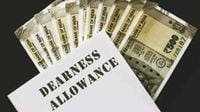The Union Cabinet, led by Prime Minister Narendra Modi, approved a 2% increase in Dearness Allowance (DA) for central government employees on March 28, 2025. This adjustment raises the DA from 53% to 55%, providing a significant salary boost for over one crore employees and pensioners. The hike will take effect retroactively from January 1, 2025, and the April salaries will reflect this increase along with arrears for the months of January to March 2025.
The decision, which will cost the government ₹6,614 crore annually, comes as a welcome relief to employees facing rising inflation. Union Minister Ashwini Vaishnaw stated, "The Union Cabinet approved the release of an additional instalment of Dearness Allowance (DA) to central government employees and Dearness Relief (DR) to pensioners with effect from January 1, 2025, representing an increase of 2% over the existing rate of 53% of the basic pay/pension, to compensate against price rise."
Dearness Allowance is a crucial component of government employees' salaries, aimed at offsetting inflation and ensuring that wages remain adequate in the face of rising living costs. While basic salaries are determined by a pay commission every decade, DA adjustments occur biannually, typically announced before major festivals like Holi and Diwali. However, this year's hike for the January-June cycle was delayed, marking the lowest increase in the past seven years, with previous hikes averaging between 3% and 4%.
The last DA adjustment occurred on July 1, 2024, when it was raised from 50% to 53%. The current increase will benefit approximately 48.66 lakh central government employees and 66.55 lakh pensioners. For example, an employee with a basic salary of ₹18,000 will see an increase of ₹360 per month, amounting to an annual benefit of ₹4,320. Similarly, a pensioner with a basic pension of ₹9,000 will receive an additional ₹180 monthly, translating to an annual increase of ₹2,160.
The DA formula for central government employees is based on the All India Consumer Price Index for Industrial Workers (AICPI-IW), which tracks changes in living costs. The DA is calculated using a 12-month average of the AICPI-IW. In contrast, public sector employees' DA is determined using a three-month average. This systematic approach ensures that DA remains aligned with the prevailing inflation rate.
The government typically announces DA increases in January and July, with the January hike often coinciding with the Holi festival and the July adjustment around Diwali. This year, however, the delay in announcing the January hike has raised concerns among employees and pensioners. As the government prepares to implement the 8th Pay Commission in 2026, discussions are underway regarding potential changes to the DA structure, including the possibility of merging it with basic pay.
Looking ahead, the next DA hike is expected to be announced in October-November 2025, just before Diwali, as the government approaches the implementation of the 8th Pay Commission. This upcoming commission is anticipated to reset the DA to zero, merging it with the new basic salary structure. The implications of these changes are significant, as they will determine salary adjustments for government employees across various levels.
For now, the approved 2% DA hike provides immediate relief to central government employees and pensioners, allowing them to better cope with inflation. As the government continues to navigate economic challenges, the focus remains on ensuring that public sector wages remain competitive and adequate in the face of rising living costs.
In summary, the Union Cabinet's approval of the 2% DA hike is a timely move that will benefit millions of government employees and pensioners. With inflation continuing to affect purchasing power, this increase is a crucial step in maintaining financial stability for those who serve the nation.








